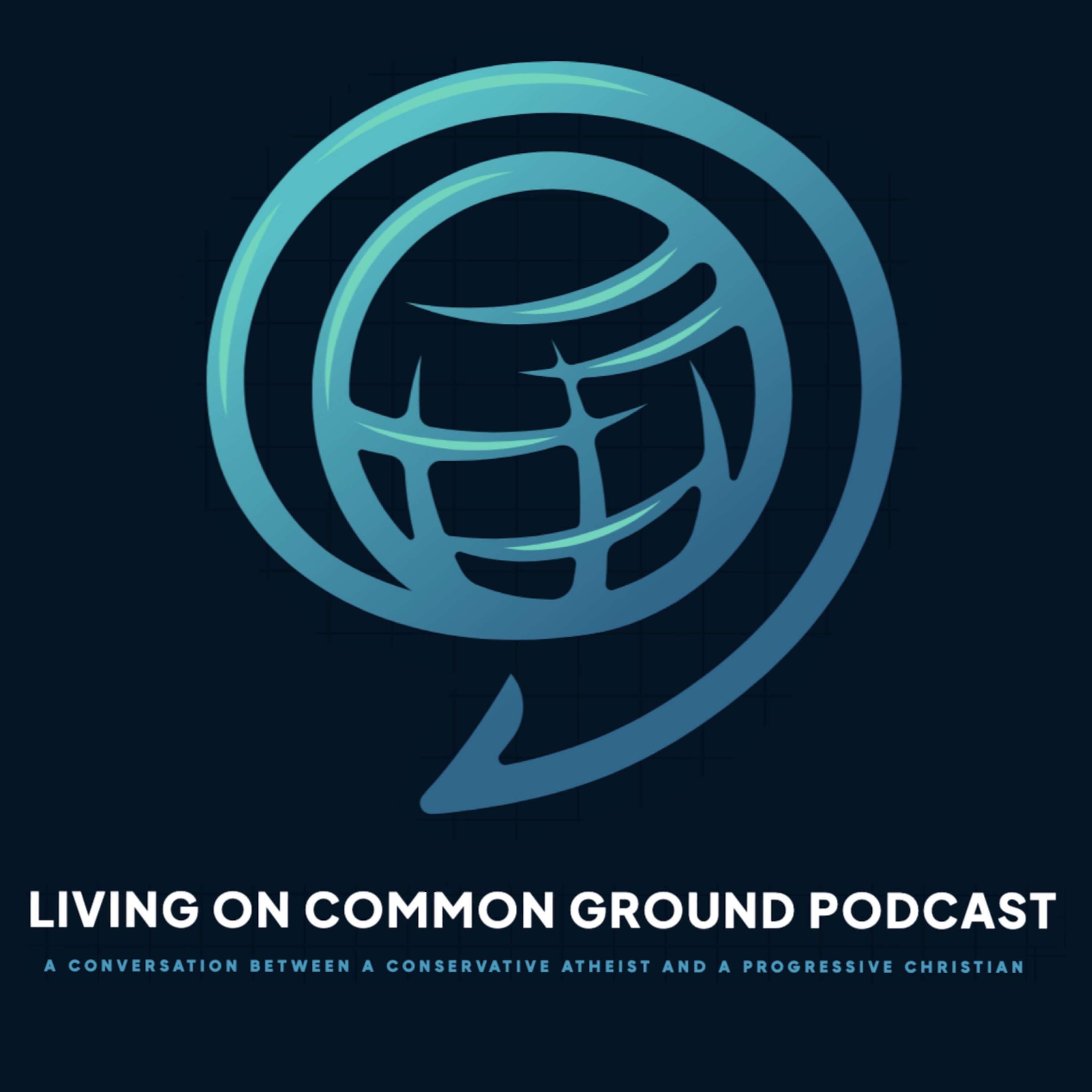Living On Common Ground

Living On Common Ground
Podcast Description
Does it feel like every part of your life is divided? Every scenario? Every environment? Your church, your school, your work, your friends. Left, right. Conservative, liberal. Religious, secular. From parenting styles to school choice, denominational choice to governing preference, it seems you're always being asked to take a side.This is a conversation between a progressive Christian and a conservative atheist who happen to be great friends. Welcome to Living on Common Ground.
Podcast Insights
Content Themes
The podcast focuses on themes of societal division and the complexities of identity, with episodes discussing issues like the impact of labels on personal and group identity, as well as the philosophical implications of AI and consciousness, exemplified by conversations featuring guest Michael about cyber security and sentience.

Does it feel like every part of your life is divided? Every scenario? Every environment? Your church, your school, your work, your friends. Left, right. Conservative, liberal. Religious, secular. From parenting styles to school choice, denominational choice to governing preference, it seems you’re always being asked to take a side.
This is a conversation between a progressive Christian and a conservative atheist who happen to be great friends. Welcome to Living on Common Ground.
Division sells, but it doesn’t solve much. We sat down—one progressive Christian, one conservative atheist—and stress-tested whether two people who disagree on faith and politics can talk through fear, foreign policy, and identity without turning each other into enemies. The short answer: yes, if we swap hot takes for honest motives and keep the relationship above the scoreboard.
We start with a spiral: news about Venezuela and saber-rattling around Greenland sparks late-night dread about drafts and war. From there we unpack how negotiation theater, “naked empire” rhetoric, and shifting justifications fuel anxiety, and why history makes it hard to pretend this is all new. We explore restraint in leadership, what bluster sometimes hides, and how much of our outrage is really about signaling who we are to our tribe rather than changing anything in the real world.
The heart of the conversation is cognitive, not partisan. We break down the dance between divergent thinking (opening possibilities, examining assumptions) and convergent thinking (deciding and acting). Wisdom requires both, whether you’re weighing environmental policy or parenting a teenager you fear is headed for pain. We borrow from stoicism to set a practice: prepare for what you control, stop rehearsing disaster, and guard your attention from feeds that mistake repetition for importance.
By the end, we offer a model for disagreement that keeps human dignity intact: name the actual outcome you want, surface everyone’s motives (including your own), and commit to one action in your control this week. If you’re tired of debates that win points but lose people, this one’s for you. If it resonates, subscribe, share with a friend who votes differently than you do, and leave a review telling us where you found common ground.
©NoahHeldmanMusic
https://livingoncommonground.buzzsprout.com

Disclaimer
This podcast’s information is provided for general reference and was obtained from publicly accessible sources. The Podcast Collaborative neither produces nor verifies the content, accuracy, or suitability of this podcast. Views and opinions belong solely to the podcast creators and guests.
For a complete disclaimer, please see our Full Disclaimer on the archive page. The Podcast Collaborative bears no responsibility for the podcast’s themes, language, or overall content. Listener discretion is advised. Read our Terms of Use and Privacy Policy for more details.